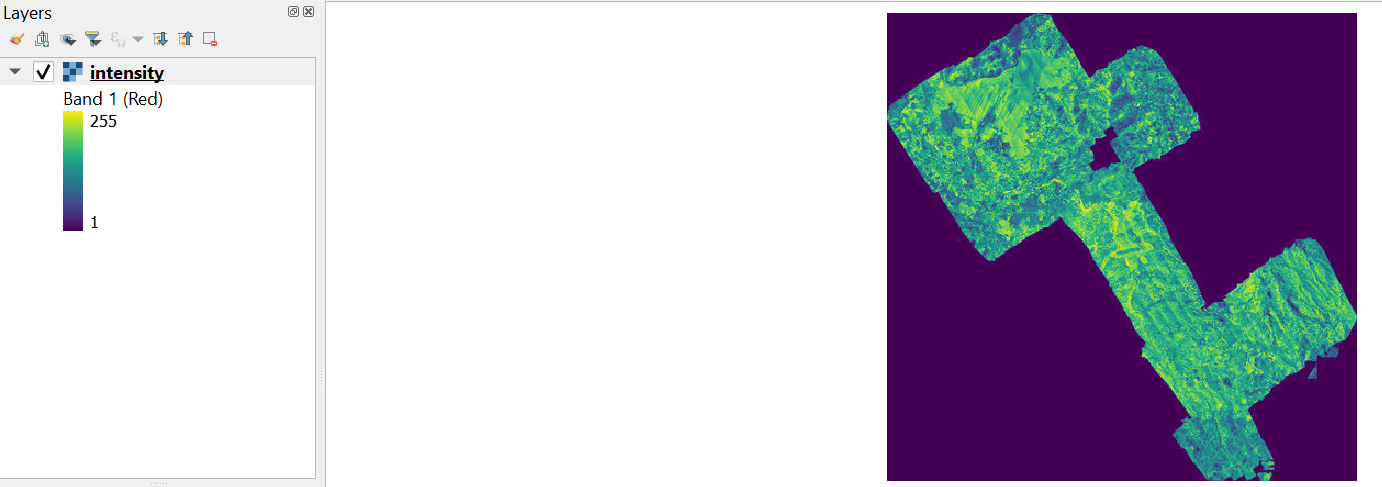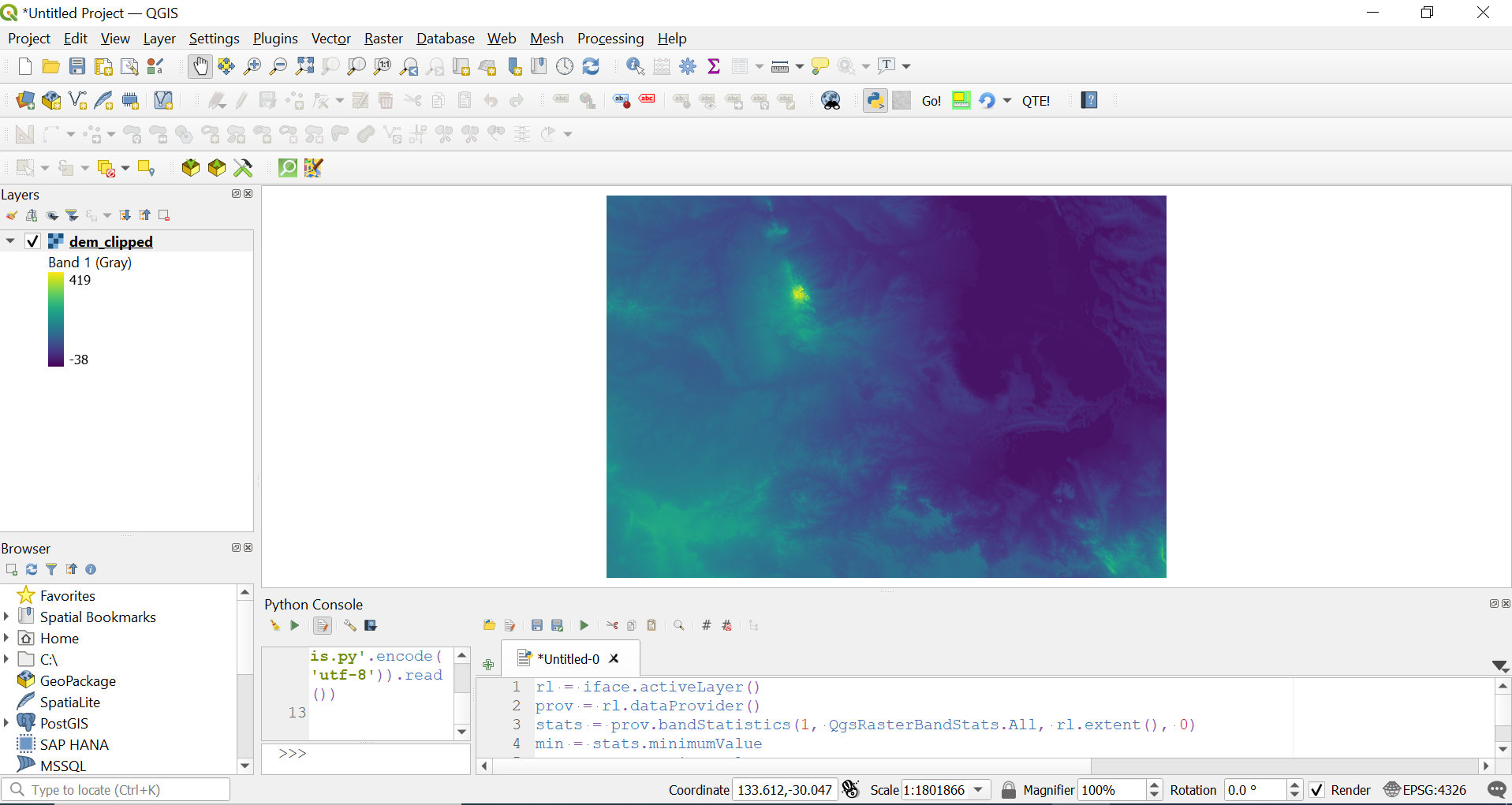I think you are just missing one line needed to create classifications from the color ramp:
ramp_shader.classifyColorRamp()
So, your modified run() method would look like:
def run(self):
# not my actual file, but one which seems to reproduce the problem
path = "/vsicurl/http://oin-hotosm.s3.amazonaws.com/59d33df023c8440011d7b26d/0/b378087a-c2a5-43a0-abec-71fcfb051150.tif"
layer_intensity = self.iface.addRasterLayer(path, 'intensity')
color_ramp = qgis.core.QgsStyle().defaultStyle().colorRamp('Viridis')
ramp_shader = qgis.core.QgsColorRampShader(1, 255, color_ramp)
ramp_shader.classifyColorRamp()# Add this line
raster_shader = qgis.core.QgsRasterShader()
raster_shader.setRasterShaderFunction(ramp_shader)
renderer = qgis.core.QgsSingleBandPseudoColorRenderer(layer_intensity.dataProvider(), 1, raster_shader)
layer_intensity.setRenderer(renderer)
layer_intensity.triggerRepaint()
When I copy the logic from the method above and run directly in the QGIS Python console (after removing references to self) I get the following result:
A broader example involves retrieving the actual max and min values from the raster using the bandStatistics() method of QgsRasterDataProvider and passing them to the QgsColorRampShader constructor:
rl = iface.activeLayer()
prov = rl.dataProvider()
stats = prov.bandStatistics(1, QgsRasterBandStats.All, rl.extent(), 0)
min = stats.minimumValue
max = stats.maximumValue
color_ramp = QgsStyle().defaultStyle().colorRamp('Viridis')
ramp_shader = QgsColorRampShader(min, max, color_ramp)
ramp_shader.classifyColorRamp()# Add this line
raster_shader = QgsRasterShader()
raster_shader.setRasterShaderFunction(ramp_shader)
renderer = QgsSingleBandPseudoColorRenderer(rl.dataProvider(), 1, raster_shader)
rl.setRenderer(renderer)
rl.triggerRepaint()
Results on a test DEM layer:


